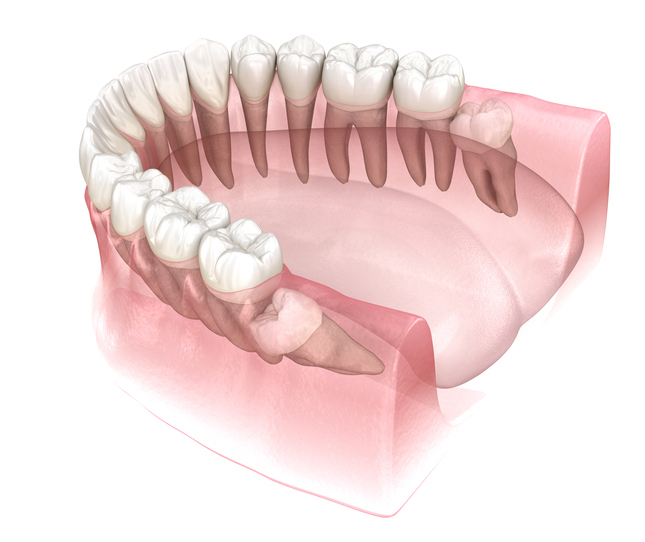Today, we will delve into the intriguing world of wisdom teeth and their removal. Wisdom teeth, also known as third molars, are the last set of teeth to emerge in your mouth, typically appearing in late adolescence or early adulthood. These teeth can be a valuable asset to your mouth when healthy and properly aligned, but often, they are misaligned and require removal.
Surprisingly, about 85% of adults will have at least one wisdom tooth removed in their lifetime. This high prevalence underscores the importance of understanding wisdom teeth removal. Whether you’re experiencing issues with your wisdom teeth or just curious, it’s vital to recognize the significance of this common dental procedure.
Identifying the Need for Removal
One of the first signs that you may need your wisdom teeth removed is pain in the back of your mouth, which can be indicative of crowding or impaction. Other symptoms include infection, cyst formation, damage to neighboring teeth, and gum disease. However, it’s not always obvious that wisdom teeth are the root cause of these issues, which is why regular dental check-ups are crucial.
During these check-ups, your dentist can identify potential problems early on through physical examinations and x-rays. At Millennium Family Dental, Dr. Gerard, Dr. Smith, and Dr. Pieper leverage their extensive experience, alongside cutting-edge technology, to detect and address these concerns promptly.
Recent studies and expert opinions reinforce the need for timely intervention. Delaying the removal of problematic wisdom teeth can lead to more severe complications, emphasizing the importance of professional evaluation and advice.
Understanding the Removal Process
The journey of wisdom teeth removal begins with a consultation. This initial step involves a thorough examination, including x-rays, to determine the position of your wisdom teeth and the best course of action.
On the day of the surgery, you’ll be provided with anesthesia options to ensure your comfort. Our team prioritizes your well-being, ensuring that the entire process is as smooth and stress-free as possible.
The removal procedure itself involves making an incision in the gum tissue to expose the tooth and bone. Any bone blocking access to the tooth root is removed, and the tooth may be divided into sections for easier extraction. After the tooth is removed, the site is cleaned, and the wound is stitched up to promote healing.
Post-Operative Care and Recovery
After your wisdom teeth removal at Millennium Family Dental, your journey towards healing begins. The recovery period typically lasts a few days to a week, depending on the complexity of the extraction and your individual healing process. We provide detailed guidance on post-operative care to ensure a smooth and swift recovery.
Diet and Oral Hygiene
Immediately following surgery, it’s crucial to stick to a soft diet to avoid irritating the surgical sites. Foods like yogurt, pudding, and soup are excellent choices. Gradually reintroduce solid foods as your comfort allows. Good oral hygiene is also paramount, but be gentle around the surgical sites. Rinsing with warm salt water can help keep the area clean and reduce swelling.
Medication and Pain Management
You may experience some discomfort after the anesthesia wears off. We typically recommend over-the-counter pain relievers or prescribe medication, depending on your needs. It’s essential to follow the dosage instructions carefully. Applying an ice pack to the cheek can also help reduce swelling and discomfort.
Recovery Timeline and Potential Complications
While most patients recover without any issues, it’s important to be aware of potential complications like dry socket or infection. Contact us immediately if you experience severe pain, fever, or unusual discharge. Remember, every patient’s healing timeline is unique, so give yourself time and be patient with your body.
FAQs and Common Myths Debunked
FAQs
Q: Is wisdom teeth removal always necessary? A: Not always. If your wisdom teeth are healthy, fully erupted, correctly positioned, and can be cleaned as part of your daily hygiene practice, removal might not be necessary.
Q: How long is the recovery? A: Recovery generally takes a few days to a week. We will provide specific guidelines based on your individual case.
Common Myths Debunked
Myth: Wisdom teeth always cause problems. Truth: While many people have issues with their wisdom teeth, some do not experience any problems.
Myth: The younger you are, the harder the recovery. Truth: Younger patients often recover faster due to better bone flexibility and healing capacity.
We encourage you to reach out with any further questions or clarifications. Our team is always ready to provide accurate and evidence-based information.
Embark on Your Wisdom Teeth Removal Journey Today!
In this comprehensive guide, we’ve explored the various aspects of wisdom teeth removal, from identifying the need for removal to the recovery process. Remember, while wisdom teeth removal is common, each case is unique, and professional dental advice is paramount.
At Millennium Family Dental, Dr. Gerard, Dr. Smith, and Dr. Pieper are dedicated to providing personalized and compassionate care. If you suspect you may need wisdom teeth removal or have any concerns about your dental health, we invite you to schedule a consultation. Let us be a part of your journey to a healthier, happier smile!





